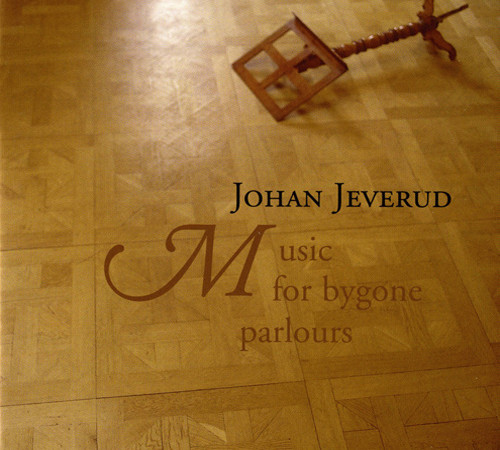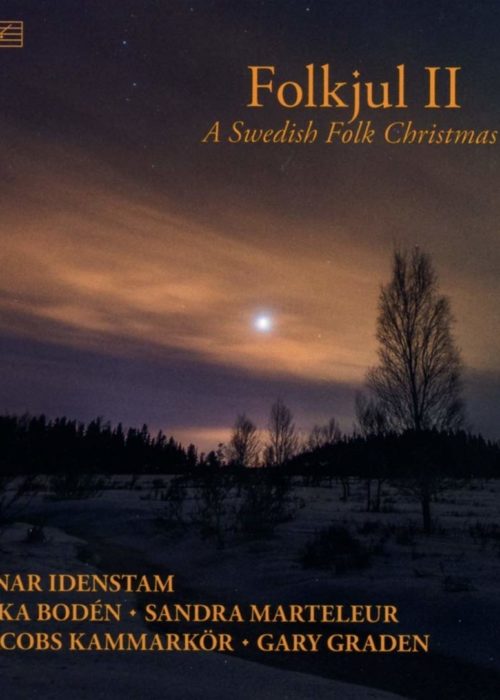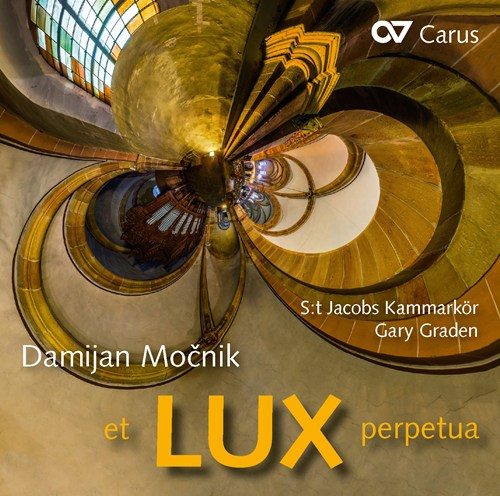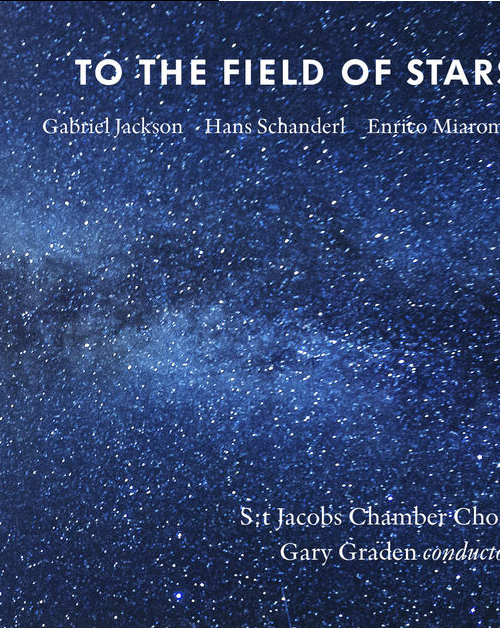single album
Music for bygone parlours, Johan Jeverud
About this CD
Musik av Johan Jeverud
S:t Jacobs Kammarkör
Dirigent – Gary Graden
Uppsala Kammarsolister
Bengt-Åke Lundin, piano
Proprius: PSCD 152 (2004)
Recorded in Studio 2, Radiohuset, Stockholm on may 4-5, 2004
Recording engineer: Torbjörn Samuelsson
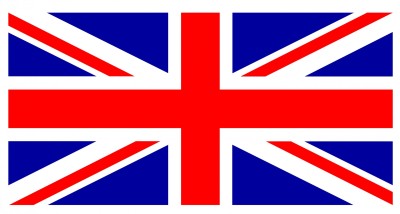 Music Web international July 2005
Music Web international July 2005
This disc is marked ‘Contemporary Classical’ but the music it presents is far from what you might conventionally expect from that label. It is only contemporary in a similar sense to the ‘modernity’ of Swiss composer Richard Flury or of the 1970s music of George Rochberg. In fact it’s pretty much in the classical-romantic ‘frame’.
Jeverud studied at the Swedish Royal College of Music (1982-1989) and has written a considerable amount of music in most media. He speaks, in his credo printed in the booklet, of atonality as a signal adopted by some composers to show that they are serious and have ambitions. Jeverud takes the view that the line between art and entertainment should be easily spanned. As he points out, the artistic world is now much more accommodating of a wide spectrum of styles. Certainly the Swedish National Council for Cultural Affairs showthatin the most eloquent way by financially supporting this disc.
With the exception of the more classically-orientated String Trio and the piano solo that gives the disc its name, Jeverud’s adopts a language that would have been instantly accessible to composers of the Franckian Belgian or French 19th century schools. There is a strangely elusive and very brief ‘foreword’ to the first movement of the Quintet where the solo violin sings a tentatively climbing Bergian theme. Otherwise think in terms of the Chausson Concert. Jeverud’s music is tumultuously impassioned, gracious and kindly. The latter quality can be heard in the second movement of the Piano Trio. It’s there also in the very touching echoing theme of the Quintet the first movement of which has a grand Brahmsian swell and surge. The Quintet’s finale is dancingly joyous in much the same way as Brahms’ Fourth Symphony. This fugally playful splendour will confuse musical archaeologists in ages to come.
The nine choral songs are predominantly set in the language of Peterson-Berger and of the Brahms’ volkslieder with a dominance of honeyed unison singing. This is offset by the occasional alternation of textures arising from the separation of men and women in a spatially differentiated dialogue. It is all very sweetly romantic, rounded, lyrical, innocent and uncomplicated. It was a sensible idea to intersperse the groups of songs with chamber music. By way of contrast the Bo Bergman settings are both starkly sombre (Masque) and chant-like (Foolish fire and the elf).
Among the chamber works the String Trio stands out for its searchingly Beethovenian manner which it blends with a haunting Mozartian sweetness recalling the contented dialogue of the K364Sinfonia Concertante.Music for bygone parlourstouches on Beethoven’s style in the fourth and eighth symphonies with volatile transitions into a grandWaldsteinmanner.
All texts are given in both the sung Swedish and in English translation. How much more useful these Phono-Suecia discs would be if only the sung words and the translation into English were printed side by side. The company resolutely refuses to do this.
Instantly accessible contemporary music comfortably adopts the mantle of the nineteenth century greats.
Rob Barnett
 Dagens Nyheter 16 mars 2005
Dagens Nyheter 16 mars 2005
“skickligt skrivet”
“bitvis så vackert man kan begära”
“luftig klang”
“Det har allteftersom blivit svårare och svårare att finna något musikaliskt meningsfullt i allt det fula och tillkrånglade som kännetecknar modern musik” säger tonsättaren Johan Jeverud (född 1962) i ett citat på Stims hemsida.
Hans eget klingande uppror mot det modernistiska idiomet kan man höra på “Music for bygone parlours” döpt efter solopianofantasin “Musik för svunna salonger”, här framförd av pianisten Bengt-Åke Lundin. Det låter ungefär som om Schumann, eller nån annan tidig romantiker, hållit för öronen i hundrafemtio år och oavbrutet fortsatt komponera.
Den kammarmusik som presenteras på skivan är också skriven för traditionella ensembleformer som pianokvintett, pianotrio och stråktrio. Musiken är inte retro i någon pastischartad mening, utan Jeverud har helt enkelt gått tillbaka till en melodik och harmonik som låter autentiskt 1800-tal. Det är skickligt skrivet, bitvis så vackert man kan begära av romantisk musik och engagerat framfört av Uppsala kammarsolister, men jag kan ändå inte låta bli att undra varför Jeverud tycks så rädd för nuet. Då känns de korta sångcyklerna för kör med sina lugna och deklamatoriska stämningar mer personliga, särskilt när de som här framförs med luftig klang av S:t Jacobs kammarkör.
SARA NORLING
 Från svt.se Kulturnyheternas hemsida vecka 11-2005
Från svt.se Kulturnyheternas hemsida vecka 11-2005
“både uppriktig och underhållande musik”
Redan titlar som pianokvintett och stråktrio luktar 1800-tal, för att inte tala om Musik för svunna salonger. Det här är musik i Robert Schumanns direkta efterföljd, som om en åldersskillnad på 150 år helt saknade betydelse.
Självfallet har det alltid funnits de som struntat i moderna, atonala uttryck och komponerat i den här stilen. Skillnaden är att de betraktats som amatörer eller epigoner. Jeverud, däremot, är en VDN-märkt och intellektuellt inriktad tonsättare som plötsligt gett fan i hela 1900-talet. Leta inte efter ironier i hans nygamla romantik. Det är faktiskt en både uppriktig och underhållande musik.
CAMILLA LUNDBERG
 Svenska Dagbladet 18 februari 2005
Svenska Dagbladet 18 februari 2005
“Han strävar efter enkelhet”
“stulen skönhet kan fortfarande vara skön”
Betyg: * *
Johan Jeverud (född 1962) har gått sin egen väg med en naivitetens medvetna strategi. Det visar en skiva med vokal- och kammarmusik från åren 1998–2003. Jeverud är ingen naiv konstnär, men han har på sätt och vis resonerat sig bort från konstnärsrollen. Han strävar efter enkelhet, skönhetstörstande. I sångerna är det visartat och i instrumentalverken är han i händerna på en sorts Schubertromantik. Bland annat är Pianotrion så dold i andras kläder att den hade blivit en knivig slamkrypare i tv:s frågeprogram Kontrapunkt.
Visst besitter också pastischen ”äkthet”, och stulen skönhet kan fortfarande vara skön. Men Jeveruds musik beskriver en paradoxal uppgivenhet inför den egna kreativiteten – inför själva kreativitetens möjligheter. I all sin romantiserade glans är det musik närd och förtärd av pessimism.
TONY LUNDMAN
